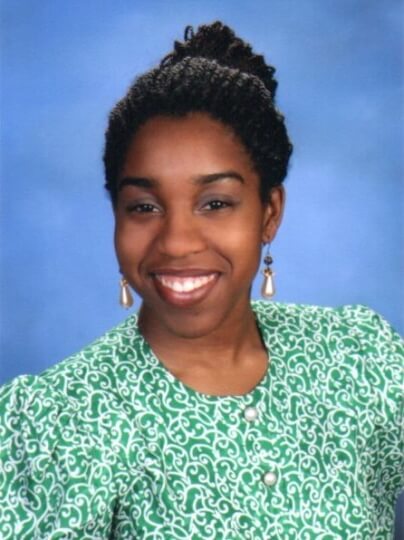Olajumoke Odedele has never been content to focus on just one thing. She arrived at the Harvard John A. Paulson School of Engineering and Applied Sciences (SEAS) already interested in the life sciences, but wanted a concentration that tapped into multiple fields. Once she discovered biomedical engineering, she knew she’d found the perfect multidisciplinary field.
Olajumoke Odedele, A.B. ’13
“Biomedical engineering is the application of medical engineering principles to medical problems,” she said. “I realized I could do everything. Pursuing all my science classes, there was no one subject that was more interesting than the others and I wanted to learn all of them. I was able to integrate all the things I’m interested in at Harvard.”
Odedele chose the A.B. track so she could take a broad range of courses outside her concentration. She took classes on the history of mental health treatment in America, gender relations, and religion.
She’s now putting everything she learned to use with the New York State Department of Health AIDS Institute, which works to improve the health and well-being of people living with AIDS and HIV, as well as to prevent new infections. Odedele is also pursuing a master’s in public health from the City University of New York Graduate School of Public Health and Health Policy.
“Public health is what I’ve always wanted to do. I just didn’t know it,” Odedele said. “I’m interested in serving the underserved, addressing problems for Black people certainly, but also for people in lower socioeconomic status, which can be anybody.”
The AIDS Institute, where Odedele has worked since September 2018, has given her the chance to tap into many of the subjects she’d studied at Harvard.
“I saw how people from the LGBTQ community or different racial or ethnic backgrounds were impacted by healthcare,” she said. “I recognized how what’s happening now is part of the long history I’d studied at Harvard.”
Seeing different groups receive different levels of care clarified the idea of health equity, a concept Odedele learned about at SEAS. It also highlighted the need for good communication skills to account for differing levels of health literacy in different communities.
“A lot of people in America don’t have the literacy skills to understand everything that they’re told by doctors,” she said. “I want to be able to explain to people in layman’s terms, and always be conscious and aware and thinking about communication.”
Odedele has always been especially interested in working with children and adolescents, and even considered becoming a pediatrician. She worked as a tutor for high school students both during and after her time at Harvard and co-authored a paper detailing a culturally sensitive exercise and nutritional program for obese Latino students while working at Zufall Health Center in New Jersey after graduation.
“At the AIDS Institute, I work with the Adolescent Quality Learning Network, which works with care providers for adolescents with HIV,” she said. “We do quality improvement work, and also help the providers improve violence prevention with their clients.”
Four years into the job, Odedele still finds herself drawing on her Harvard education. A recent look at research on women who ingest marijuana during pregnancy recalled her courses on the history of gender and healthcare, and efforts to reach out to religious communities experiencing HIV outbreaks drew on her education in the history of religion in America.
“HIV isn’t just an illness. It can be connected to intimate partner violence, unstable housing, drug use, all of these interconnected things,” she said. “I really appreciate what I learned at Harvard. I learned so many things, and they continue to intersect at the AIDS Institute, because HIV is intersectional with more aspects of society than we often think about.”
Press Contact
Matt Goisman | mgoisman@g.harvard.edu
